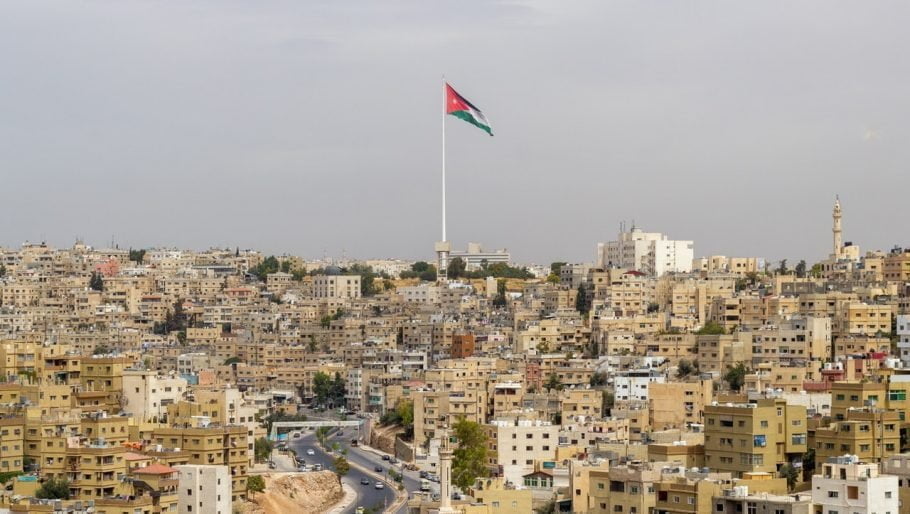Cash in a COVID-19 crisis: Adapting approaches to assisting Jordan-based refugees

Cash assistance to vulnerable refugee households has been a central part of the humanitarian response in Jordan for many years. The Covid-19 crisis challenged this provision for both agencies and refugees; it led to a drastic increase in vulnerabilities among refugees and significantly complicating the delivery of cash assistance by humanitarian organisations and access to cash assistance for refugees.
A recent study commissioned by the CALP Network, the Durable Solutions Platform and CAMEALEON documents and assesses collective learning and decision-making on whether and how cash-based programmes in Jordan, donors and refugees were able to adapt to these previously unforeseen challenges.
What was the impact of Covid-19 on refugees and humanitarian action in Jordan?
Very strict government lockdown. In response to the first case of Covid-19 in March 2020, the Government of Jordan took a range of strict measures to limit the movement of people into and within the country. For several weeks during March and April 2020, residents were not able to leave their homes at all or only to purchase food and necessities. Whilst government measures were loosened during the summer, stricter measures were reimposed towards the end of 2020 to deal with a surge in cases.
Loss of income and employment for refugees and vulnerable Jordanians. The Covid-19 pandemic and the consequent lockdown have had an enormous impact on the lives and livelihoods of vulnerable populations in Jordan, including refugees. The majority of those refugees who had jobs prior to the pandemic lost their job during the early stages of the crisis and many have not been able to return to their jobs or find new jobs during 2020. Remittances from overseas, an essential pipeline for many, also significantly reduced. Economic difficulties were indicated by increasing household debt levels during 2020.
Operational challenges. Restrictions to movement were one of the biggest challenges to the provision of cash assistance, particularly in the immediate aftermath of the lockdown in March and April. Beneficiaries often found it more difficult to access cash assistance as ATM machines or other cash-out points were not always within walking distance.
Organisations were not able to conduct household visits to collect information, monitor activities or provide protection services and struggled to distribute ATM cards to new beneficiaries. All this was in the context of the social distancing and sanitary measures that had to be put in place to reduce transmission risks from project activities.
Limitations to consultation with beneficiaries. Most organisations were not able to consult with beneficiaries on the adaptation measures due to pressures of time and because they did not want to raise expectations.
How did humanitarian organisations adapt their cash-based programmes?
Humanitarian organisation took a variety of adaption measures to continue and expand cash-based programmes during 2020. These measures were aimed at:
- Reducing transmission risks during beneficiary engagement,by staggering cash payments, front-loading cash assistance, coordinating fund disbursements and applying safety protocols and measures at the collection points (g. ATM machines).
- Ensuring that beneficiaries could collect their benefits, by introducing mobile ATMs, relying more on token-less distribution mechanisms including Iris enabled ATMs and mobile money, and incorporating service providers that were able to operate during the lockdown.
- Maintaining communication and accountability with refugee populations, by moving to remote work modalities and strengthening remote data collection (for needs assessment, post distribution monitoring, household verification) and providing protection services (including case management and psycho-social support) through the phone. Helplines proved particularly valuable to receive feedback and disseminate information.
- Responding to increasing needs, by horizontally expanding cash programmes. Between April and December 2020, the Covid-19 emergency cash response assisted approximately 60,000 UNHCR registered refugee families and 25,000 Palestinian refugee families with JOD 4 million (equivalent to USD 44.3 million), focusing on families of informal workers who have lost their jobs. This significant horizontal expansion was made possible by leveraging and expanding existing systems for beneficiary identification, payments and communication. In particular, existing beneficiary databases and delivery mechanisms that did not require the distribution of a token (e.g. Iris enabled ATM machines and mobile money) allowed humanitarian organisations to respond quickly to the needs of additional refugees despite movement limitations.
What made these adaptations possible?
Strong coordination. Coordination of adaptation measures and for the Covid-19 emergency cash response primarily took place in the Covid-19 Response Task Force (CRTF) and the Common Cash Facility Task Force (CCFTF). Both task forces helped to establish a common understanding of the situation, facilitate learning exchange, identify gaps and reduce overlap of assistance. The CRTF collectively developed the common response standards, which laid the ground for a relatively harmonised Covid-19 emergency cash response.
Supportive donors. Decisions on adaptation measures were predominantly based on needs assessments and mainly taken internally and in coordination with other actors. Informants told us that donors were flexible, supportive and non-directive, allowing their partners to make their own decisions on how best to adapt cash-based programmes based on evidence.
What lies ahead?
Prepare for and assess continuing needs and impacts. The Covid-19 pandemic and the associated economic crisis continue to negatively impact the lives and livelihoods of refugees. Moving forward, it is essential to better assess and document the persistent needs and vulnerabilities of refugee populations, and the continued impacts of Covid-19 on access to work and income sources. It is likely that the dire situation warrants the exploration of a Covid-19 cash assistance follow up response in 2021. Furthermore, given the unpredictable nature of the pandemic, humanitarian cash providers need to be prepared for another lockdown scenario.
Think medium-term. In the medium-term, the crisis has further revealed the need to further strengthen the resilience and self-reliance of refugees in Jordan. From the findings of this study, three main entry points emerge to strengthen the resilience and self-reliance of refugees: promote the alignment and integration of humanitarian cash assistance and government social assistance, further strengthen refugees’ access to the (formal) labour market and promote financial inclusion of refugees through the expanded use of mobile money.
What have been the experiences in the countries where others work? Is Jordan a model of rapid and appropriate adaptation or have opportunities been missed? Please share your experiences and thoughts in the comment box below!
Finally for those interested to read more, this report is a companion to a study in Lebanon carried out by Durable Solutions and Camealeon in 2020.
Author

André Dürr has been working in the humanitarian and development sector for the past 15 years, of which the last 10 have focused on cash and voucher assistance. He is currently working as a Jordan-based independent consultant on cash transfers and social protection. Prior to that, he worked with UNICEF, the ICRC, the Swiss Agency for Development and Cooperation, WFP, UNRWA, and UNDP in the Balkans, the Middle East and Africa.
Main image: Capital city of Jordan, Amman. Credit: Lars Fortuin


